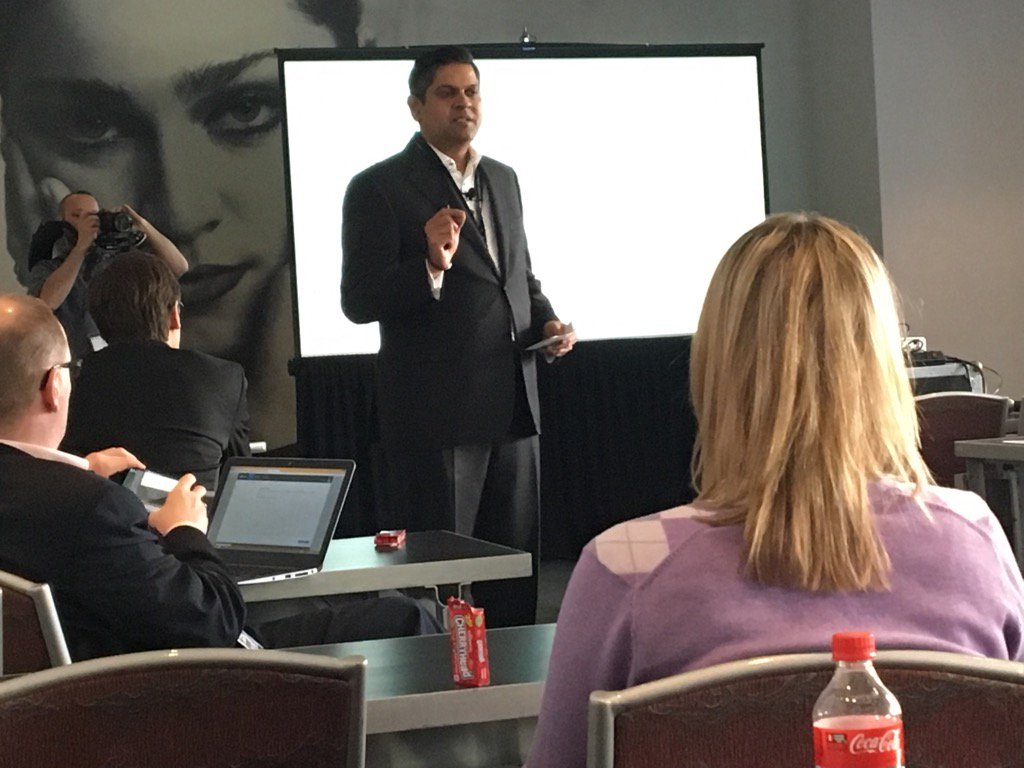
Industry of Things Forum-Internet of Things Everywhere
 I just attended an amazing conference, Industry of Things World USA, in San Diego. Internet of Things was discussed from many angles. The nonstop pace is the reason for no posts for two days. The 400 attendees, about 10% women, gathered from 28 countries and 234 companies. 21 companies sponsored the event, and I was one of the media sponsors. The high profile speakers, ranging from an Undersecretary of the Dept. of Commerce to Harvard Business School professor and author Michael Porter.
I just attended an amazing conference, Industry of Things World USA, in San Diego. Internet of Things was discussed from many angles. The nonstop pace is the reason for no posts for two days. The 400 attendees, about 10% women, gathered from 28 countries and 234 companies. 21 companies sponsored the event, and I was one of the media sponsors. The high profile speakers, ranging from an Undersecretary of the Dept. of Commerce to Harvard Business School professor and author Michael Porter.
Check out the Twitter feed at #IoTClan.
The conference was organized from Berlin, Germany. So, how did they attract such an outstanding attendee list without running ads in major media sites–even major considered from the industry point of view. I heard about the conference from an email. Several people I talked with also heard about it from an email. The organizers, in fact, sent 1.5 million emails in the course of bringing the conference together.
They told me that it was emails and networking. A few people I talked with had been contacted by colleagues in Germany where the organizers have a track record.
Here are a few notes:
Willie May, Under Secretary of Commerce for Standards and Technology (NIST) called the IoT a new paradigm, “It’s going to be big.” NIST is working with industry and academia on standards and testbeds.
 Jeff Jaffe, president of W3C–the worldwide web consortium, discovered the importance of metadata and interoperability of data among apps. RESTful interfaces lie on the standards roadmap. Everyone seems to want to rename the IoT in their own way. For Jaffe, it is the Web of Things. “The Web is fueling a transition from costly monolithic software to an open market of apps. Check out the diagram showing his idea that Web technologies can enable vertical & horizontal integration. These go vertically field level to business level (low to high levels of abstraction) and horizontally as integration along supply chain to integration along the value chain.
Jeff Jaffe, president of W3C–the worldwide web consortium, discovered the importance of metadata and interoperability of data among apps. RESTful interfaces lie on the standards roadmap. Everyone seems to want to rename the IoT in their own way. For Jaffe, it is the Web of Things. “The Web is fueling a transition from costly monolithic software to an open market of apps. Check out the diagram showing his idea that Web technologies can enable vertical & horizontal integration. These go vertically field level to business level (low to high levels of abstraction) and horizontally as integration along supply chain to integration along the value chain.
SAP, EVP for IoT Tanja Rueckert, said, “What will really be impacted by IoT are the business processes, disruptive business models, efficiency models.”
Tom Burke, president of the OPC Foundation, discussed the value of data in his presentation to a packed room during a breakout. That showed the amount of interest in the manufacturing side of things
Lead of PwC IoT practice, Kumar Krishnamurthy, in one of the better presentations I heard “IoT from Strategy to Execution”, calld for the right focus–creating value rather than technology. He noted, “Evolution of products, integrate digital with operations, reevaluate go-to-market, manage shifts in revenue model.” Continuing a conference theme, he proclaimed, “Digital transformation is not about technology…but about creating value using an enhanced set of asset base. Technology enabled devices do not make the machines smarter…rather they enable businesses to evolve their model to serve differently. Success is not all about data and analytics…but leveraging the information with judgement and expertise.”
Michael Porter predicted that IoT (or smart products) will expand industry boundaries as well as change organizational structure.
Finally, in a presentation “IoT, Fact or Fiction, Timothy Chou, a lecturer at Stanford and author, suggested that young students learn machine learning-static and dynamic-for the future. “Lots of sensors generate too much data. We must learn to deal with it–with machine learning a key.
He said, “Asset management was developed when things were very dumb. Now I can put a full computer in almost everything. Why not have the machine issue the work order? It is time to rethink middleware.”




